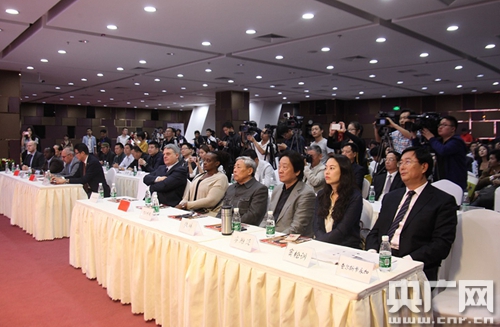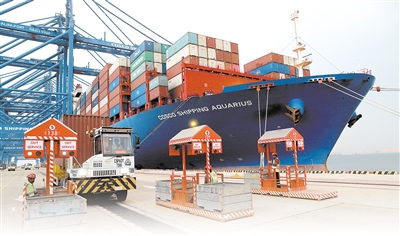India Has Just Shown Goodwill To China And Turned Against Each Other! The China-Pakistan Economic Corridor Extends To Afghanistan, And Modi Has Stumbled On Neighboring Countries Again
India Has Just Shown Goodwill To China And Turned Against Each Other! The China-Pakistan Economic Corridor Extends To Afghanistan, And Modi Has Stumbled On Neighboring Countries Again
On July 24, 2025, the Indian Ministry of Foreign Affairs just announced the relaxation of tourist visa restrictions on Chinese citizens. The outside world is still speculating whether the relations between the two countries will recover, but the Indian government then publicly opposes the extension of the China-Pakistan Economic Corridor to Afghanistan.
India's vigilance against the China-Pakistan Economic Corridor is no longer new. For many years, New Delhi has always regarded the project as a strategic tool for China to expand its influence in South Asia, and even believed that it threatened India's national security.

On July 24, 2025, the Indian Ministry of Foreign Affairs just announced the relaxation of tourist visa restrictions on Chinese citizens. The outside world is still speculating whether the relations between the two countries will recover, but the Indian government then publicly opposes the extension of the China-Pakistan Economic Corridor (CPEC) to Afghanistan.
On the same day, when Indian Foreign Minister Singh was questioned at the Federal Court, he clearly stated that the Indian government firmly opposes the extension of the China-Pakistan Economic Corridor to Afghanistan. The reason given by Singh is that the China-Pakistan Economic Corridor passes through the Kashmir region, and India claims that the Kashmir region is its own, but is now controlled by Pakistan.
But everyone knows that the China-Pakistan Economic Corridor passes through the Kashmir region actually controlled by Pakistan, and has no direct relationship with the territorial demands advocated by India, but India just thinks that Kashmir is its territory.
In India's view, if the China-Pakistan Economic Corridor is really completed in full, it will not only strengthen Pakistan's economic and strategic position, but may also further break Afghanistan away from India's sphere of influence.
As early as May this year, with China's active mediation, Pakistan and Afghan Foreign Ministers attended the China-Pakistan-Arab three-nation meeting in Beijing. The meeting held in-depth discussions on issues such as the China-Pakistan Economic Corridor, as well as customs clearance and trade agreements between Afghanistan and Pakistan, and finally achieved important results: Pakistan and Afghanistan decided to open borders to each other and carry out free trade of specific commodities.
In order to help Afghanistan develop and enable Afghanistan to establish closer economic ties with China, and at the same time, with the help of the China-Pakistan Economic Corridor to obtain an outlet, the three countries reached a consensus on extending the China-Pakistan Economic Corridor to Afghanistan.
This was originally a good thing for the three countries to work together to promote regional development, but India could not sit still at first sight and directly publicly opposed it during the critical period of project promotion. This time must have been carefully calculated.
In fact, India opposes China's China-Pakistan Economic Corridor and is unwilling to join the "Belt and Road" initiative. This is no longer a day or two, and nothing is surprising. There are also traces to what India does.
The first reason must start with the distorted psychology caused by the comparison between India and China. India has long wanted to learn from China and surpass China. Under this complex mentality, India is both envious and unbalanced about the measures proposed by China and the achievements it has achieved.
India felt that it was independent earlier than China. It became independent in 1947, two years earlier than China. Moreover, its early development speed and international environment were superior to China. At that time, India's per capita GDP was 1.4 times that of China, but now it is less than one-fifth of China's.

As a result, China's development is far beyond itself, and this development gap has given birth to a strong sense of competition.
Accumulated over the years, this distorted psychology makes India unable to view China's development objectively. If China proposes anything, even if India does not completely oppose it, it will be sarcastic and make some incomprehensible actions.
Take China's "Belt and Road" initiative for example. This is a great thing that is beneficial to all countries around the world through railways, highways, shipping, etc.
But in India's eyes, it has become a manifestation of China's attempt to dominate the world, so it firmly opposes it. Some netizens said that if the "Belt and Road" was replaced by India, India would have been promoting it with great fanfare. In 2015, the Modi government launched the "Spice Road" plan to try to hedge against our country's "Belt and Road", but later it broke down due to the outbreak of the Middle East issue.
This psychological imbalance is an important reason why India opposes the China-Pakistan Economic Corridor and does not participate in the "Belt and Road".
The second reason is based on actual economic interests and geopolitical considerations. With its strong industrial strength and huge production capacity, China has quickly opened up markets and built emerging markets through the "Belt and Road" initiative, which has made India very envious.
India is also an industrialized country with a population of 1.4 billion and wants to sell its products, but the product quality is not up to standard and there is no perfect logistics system. It cannot compete with China at all, so it can only be anxious.
As the southward branch of the "Belt and Road", the China-Pakistan Economic Corridor has even more hated India. With China's strong investment and Pakistan's active cooperation, the China-Pakistan Economic Corridor has driven the rapid development of Pakistan's economy. India and Pakistan have been in conflict for a long time. The stronger the Pakistan economy, the more difficult it will be for India to control the other side in India-Pakistan relations.
Like the previous "57 Air Battle", this fear in India has deepened. In order to maintain its dominance in India-Pakistan relations, India naturally has to oppose everything that can enhance Pakistan's strength. The China-Pakistan Economic Corridor has naturally become a thorn in its side and must be eliminated so quickly. This is India's geopolitical considerations.
Last point, after the major changes in the situation in Afghanistan in 2021, the Ata government initially wanted to attract investment from countries such as the United States, Russia, Japan, India and other countries with its abundant mineral resources.
But the reality soon made the Atta government understand that to develop the economy, it also has to rely on neighboring countries, namely Pakistan, China and Central Asian countries. So later, the Afghan government changed its attitude. On the one hand, it signed an interconnection agreement with Central Asian countries such as Uzbekistan and Tajikistan, and finally connected to China;

On the other hand, we hope to use the China-Pakistan Economic Corridor, a major artery of economic development, to drive our own development.
The change in Afghanistan's attitude has angered the Indian government, which has always wanted to invest a lot of money in Afghanistan. India feels that it has been "failed" by Afghanistan and has failed in the competition for Afghanistan. Modi will inevitably worry that after the economic corridor extends to Afghanistan, it will form a trade network that connects Central Asia and further weakens India's regional influence.
For many years, India has wanted to maintain its position as the overlord of South Asia, but the current regional situation does not allow it. The furious India is likely to cause more trouble in the China-Pakistan Economic Corridor, especially the extension of the China-Pakistan Economic Corridor to Afghanistan, but we will definitely not sit idly by, so we will just wait and see the subsequent development.





